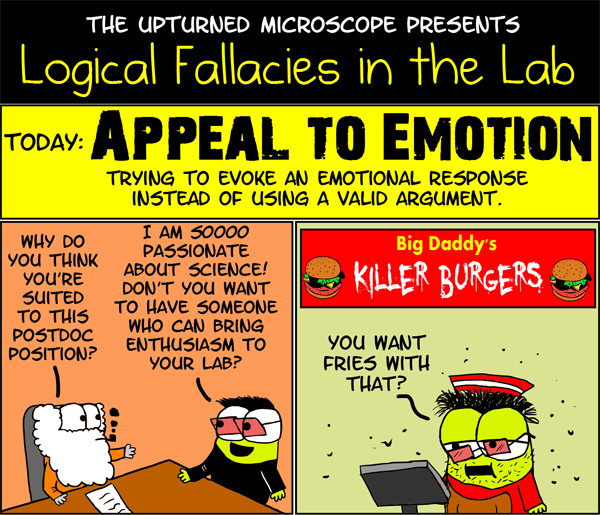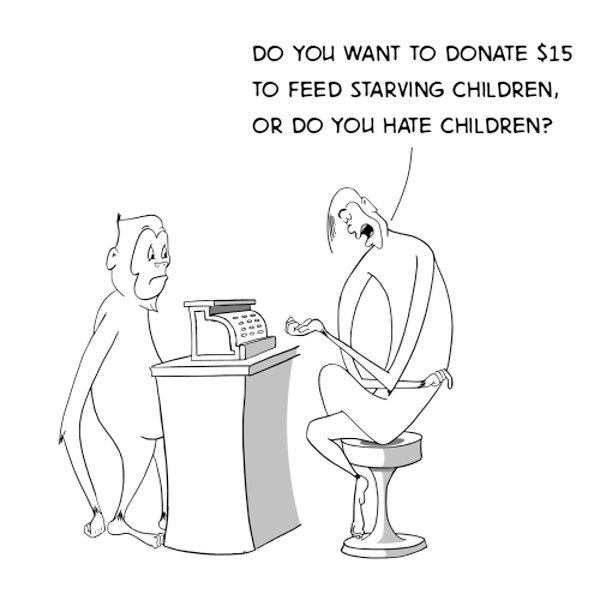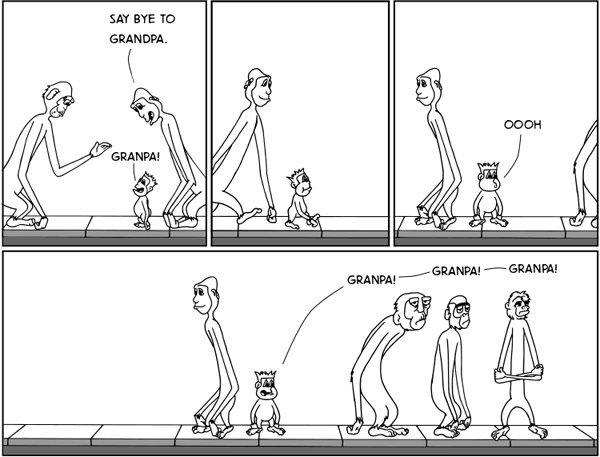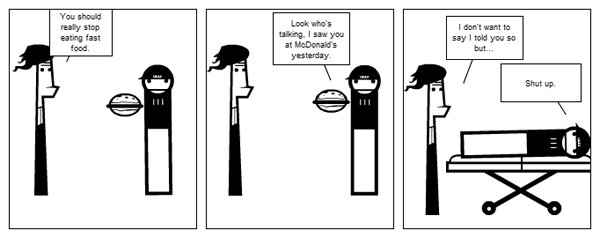How To Debate On The Internet - Common Types of Logical Fallacies - Part 2
After the my previous article "How To Debate On The Internet - Common Types of Logical Fallacies.
I received a lot of positive feedback and I was asked to do the second part.
I have kept my promise, so here is Part 2.
Appeal To The Bandwagon (Appeal To The People/Common Belief)
It is referring to a belief or an opinion held by majority of population as proof that some claim is true. Simple popularity of an opinion cannot be used as evidence to support the claim. Popular opinion can only be considered true if it is supported by facts.
This fallacious argument is commonly exploited by all sorts of ideologically conditioned people. They often claim that their ideology is right, because majority of population follows it.
"If this idea wasn't the best for us, then there majority of the nation would not follow it." (said fascist)
I personally call this fallacy "Sheep Mentality".
Premise 1: X is the popular ideology.
Premise 2: Popular things are true.
Conclusion: X must be true, so I should follow it.

[Picture credit]
Appeal To Ancient Wisdom (Argument From Age)
It is an assumption that something must be factual, valid or effective, because it was used by past generations.
This logical fallacy is often used by people who try to promote different kinds of "natural" or folk remedies. For example, they presume that some medicine must have healing properties, because it was used in ancient China, India etc .
Person A said X is true.
Person A is an ancient sage.
Conclusion: Therefore X must be true.

[Picture credit]
Appeal To Tradition
It is claiming that something is true, because it has or had been traditionally used or believed through many generations. Tradition cannot be a point of reference validating correctness of any claim. Tradition is not an evidence, so it cannot be used to prove the claim.
Many ancients societies believed that the Earth is a flat disc. It did not make it so.
Premise: X has been used by people for centuries.
Conclusion: Therefore X must be true.

[Picture credit]
Appeal to Emotion (Emotional Appeal, Argument From Pity)
This fallacy happens when someone attempts to manipulate opponent's emotions by appealing to their biases.
Showing photographs of suffering children or homeless in order to persuade donations for some charity is an example of this type of fallacy.
Recently, I encountered street children charity fundraisers who had written on the back of their shirts: "You've just turned a blind eye on starving children".
Premise 1: I am one of only few surgeons in this city.
Premise 2: If you send me to jail, there'll be not enough surgeons in the hospital and many patients are going to die.
Conclusion: Therefore you should not send me to jail.

[Picture credit]
False Dilemma (False Dichotomy, Black-Or-White)
This is an attempt to win the argument by giving simplistic, few choices (often just polarized), when in reality there are many more choices.
An example would be accusing someone to be a supporter of the enemy, because he or she does not support the country's troops fighting in foreign conflicts.
"You are either supporting the troops or you are against us".
"You are a bad citizen, because you don't go voting during presidential elections".
Premise 1: Both X and Y cannot be true.
Premise 2: X wasn't true.
Conclusion: Therefore Y must be true.

[Picture credit]
Hasty Generalization (Overgeneralization)
Hasty Generalization happens when someone comes to a conclusion about something, when there is not enough data to support the claim, because the sample taken was too small.
An example of this logical fallacy would be asking 5 random people on the street for their opinion and use it to represent the opinions of the whole country's population.
Premise 1: Sample X is acquired from population A and claims YZ.
Premise 2: Sample X is too small to represent population A.
Conclusion: All population A must be claiming YZ.

[Picture credit]
Appeal To Hypocrisy (Personal Inconsistency, Tu Quoque)
It is a type of ad hominem argument, that happens when opponent's claim is countered by accusing the opponent of expressing behavior that is inconsistent with the claim. It is an attempt of shifting the attention away from the claim by pointing out opponent's hypocrisy.
This fallacious type of reasoning is frequently exploited by politicians.
Example:
"John: Smoking is unhealthy.
Joe: You are a smoker yourself. "
Premise 1 : Person A is claiming X about person B.
Premise 2: Person B points out that X is also true about Person A ("You are a hypocrite!").
Conclusion: Therefore X must be false.

[Picture credit]
Appeal To Nature
This logically fallacious argument occurs when someone argues that something is good or healthy, just because it is "natural". Often implying that something "artificial" is bad for you.
Obviously, just because something is "natural" or artificial does not automatically make it bad or good.
For example, antibiotics are artificial but they have positive healing effect. Belladona or organic arsenic are natural but they are poisonous to humans.
Also, it is matter of the amount being used. Water is natural also but if you drink too much of it you can die from hyperhydration.
Premise 1: X is natural.
Premise 2: Y is artificial.
Conclusion: Therefore X must be better than Y.

[Picture credit]
I hope that you enjoyed the article.
-logic
Link to part 1 - "How To Debate On The Internet - Common Types of Logical Fallacies".
Nice article. Greatest collection of such material I have seen.
I'll merely point out that not all arguments are exercises in logic. In fact, most are not won that way.
And in the case of faith, I suspect that very few people have been saved by flawless logic. Some things are spiritually discerned.
(Appeal to famous celebrity. I'm not a logical thinker but I play one on TV)
Nice quote :-)
I just can't stand Spock... nothing logical about the things he says most of the time. :p
Your fallacy posts are always top notch!
Thanks sceptic!
These kind of breakdowns are useful for us all. I think at various times we can all sink to the level of using these fallacies - we are human after all. Change can only come through awareness.
And awareness can only come through relevant education :-)
Exactly. They should really teach these kinds of things in school. Indeed it should be taught both in social studies and science classes.
Nice work. I wish they taught this shit in kindergarten.
Thanks. I agree. This is fundamental knowledge like cooking. It is about communicating with others. It should be taught in primary school. They don't teach you that even at Uni level.
I wish they would teach fundamental rules of "logic" and go from there.
and if I disagree with the fallacies is that I don't understand.
I would say that disagreeing does not make the fallacy invalid :-)
Disclaimer: I am just a bot trying to be helpful.
I have just updated the photo source. No more twitter link.
@lemouth said that the enjoyed the pictures. He can't be wrong. So I like them to )
Tried to be funny here but all i wanted to say is i really enjoyed the article and Yes, pics are the best :)
I'm glat to hear that you enjoyed the post ;-)
https://yourlogicalfallacyis.com/poster
Most common fallacies :)
Yeah :-)
What a great part 2! Only had to wait a month ;) :D
Lol it is a monthly magazine :-P
I enjoyed the pictures... really! :)
Thanks!